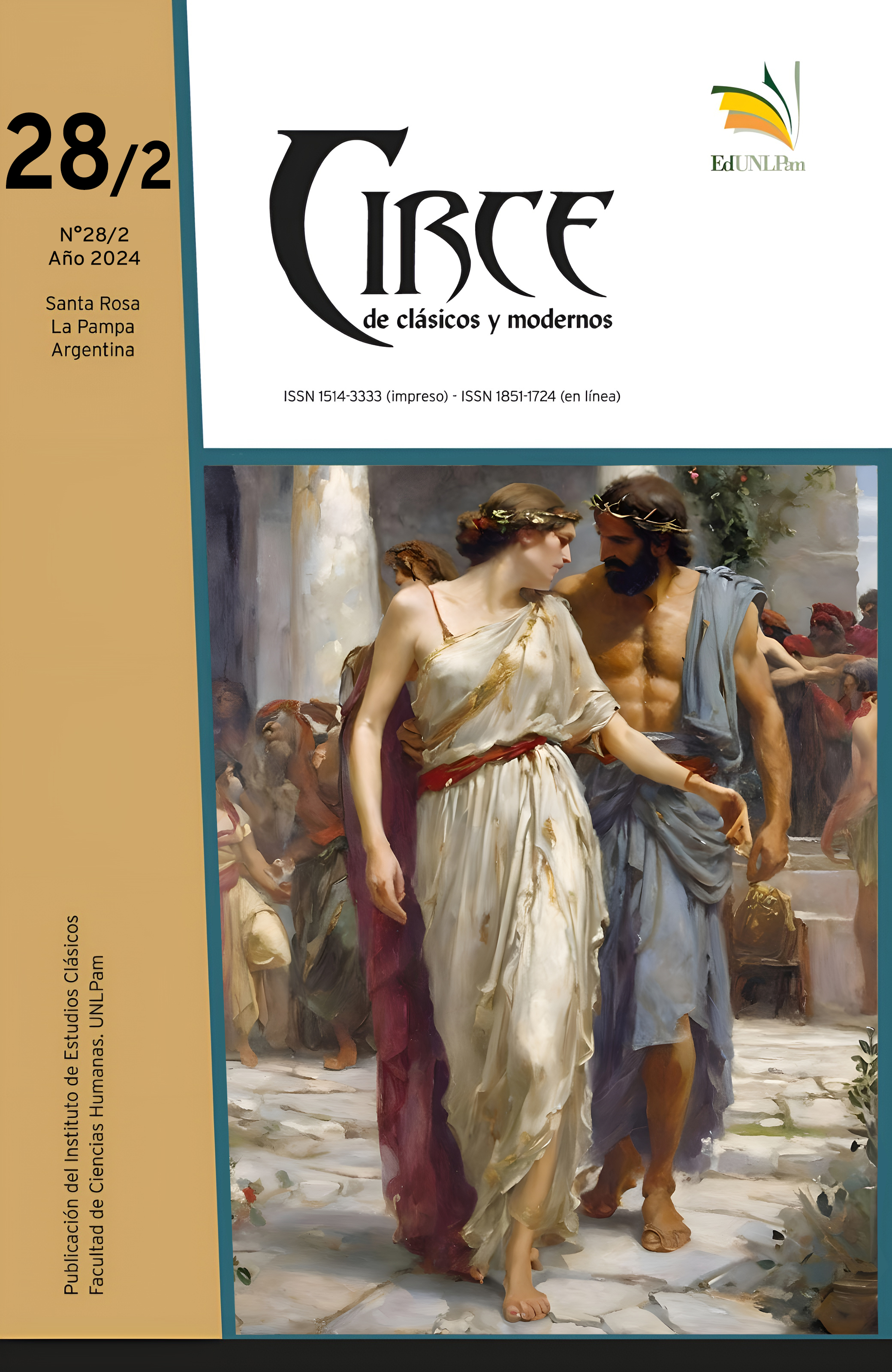Agreements and dissonances in Hector’s speeches with the Iliad’s audience
Keywords:
Iliad, Homer, Hector, speeches, audienceAbstract
The construction of Hector as an attractive figure for the audience of the Iliad is a well-studied topic in criticism. Different hypotheses and elements contributing to this effect have been given, but there is clear agreement that the hero, particularly among the Trojans, is one of the most sympathetic to the audience throughout the poem. This paper sets out to study the hero’s speeches and their attunement with the feelings and opinions of the audience, and in general with the emotional tone of the different moments of the poetic performance. We hypothesize that, as Hector's tragedy unfolds, the relationship between the perception of events manifested in the hero’s words and that of the audience becomes increasingly conflicted, a process that is reversed at the moment when the imminence of his death becomes clear to the character. Thus, we will attempt to demonstrate that the audience’s identification with Hector is not a simple, linear phenomenon, but is manipulated by the poet to generate expectations and anxiety in the audience in order to retain their attention to the epic spectacle.
Downloads
Downloads
Published
Issue
Section
License
Los autores que tengan publicaciones con esta revista, aceptan los términos siguientes referidos a los derechos de autor/a:
1. Los autores/as conservarán sus derechos de autor y garantizarán a la revista el derecho de primera publicación de su obra, el cuál estará simultáneamente sujeto a la Licencia de reconocimiento de Licencia Creative Commons Atribución-NoComercial-CompartirIgual 4.0 Internacional (http://creativecommons.org/licenses/by-nc-sa/4.0/). que permite a terceros compartir la obra siempre que se indique su autor y su primera publicación esta revista. El autor es el titular del copyright.
2. Los autores/as podrán adoptar otros acuerdos de licencia no exclusiva de distribución de la versión de la obra publicada (postprint) siempre que se indique la publicación inicial en esta revista. La cesión de derechos no exclusivos implica también la autorización por parte de los autores para que el trabajo sea depositado en el repositorio institucional y difundido a través de las bases de datos que el editor considere adecuadas para su indización, con miras a incrementar la visibilidad de la publicación y de sus autores.
3. Se permite y recomienda a los autores/as difundir su obra a través de Internet antes y durante el proceso de envío, lo cual puede producir intercambios interesantes y aumentar las citas de la obra publicada.







.jpg)









2.png)



